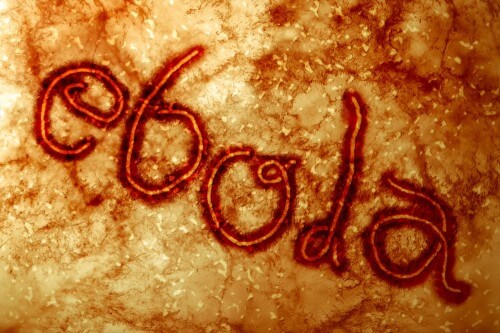Behind the unprecedented outbreak of Ebola in West Africa is a species with a tremendous ability to take over its host.

Behind the unprecedented outbreak of Ebola in West Africa is a species with a tremendous ability to take over its host. The Zaire Ebola virus (Zaire is the former name of the Democratic Republic of the Congo in central Africa) and the family of filoviruses to which it belongs owe their violence to mechanisms that first disrupt the host's immune response and then disrupt the vascular system. The virus progresses so quickly that researchers had great difficulty deciphering the exact sequence of events of Ebola's attack on the body, especially during an outbreak. Much is still unknown, including the role of some of the seven proteins that the viral RNA produces as it invades, hijacks and takes over host cell mechanisms and the immune responses needed to defeat the virus before it spreads throughout the body.
The researchers can examine how the virus attacks different cells in culture. They can also observe the progression of the disease in non-human primates (apes) - this is almost a model for the progression of the disease in humans.
Here are some of the basic facts we understand about how Ebola and humans interact with each other.
What does Ebola do to the immune system?
Once the virus enters the body, it targets several types of cells of the immune system, which represent the body's first line of defense against invasion. It affects dendritic cells, which normally display signals of infection on their surface and thereby activate T-lymphocyte cells - those white blood cells that can destroy other infected cells before the virus replicates many more copies of itself. If the dendritic cells are damaged, following the encounter of the Ebola virus with them, they do not present the correct signal and T cells do not respond to the infection. The antibodies, which depend on T cells for their activation, do not respond to the viral invasion either. The first line of defense of the immune system is paralyzed, which allows the virus to start multiplying immediately and quickly in the cells it has invaded.
Ebola, like many other viruses, works in part by inhibiting interferon - a type of molecule that cells use to inhibit viral growth. In a new study recently published in the journal Cell Host & Microbe, researchers found that one of the Ebola proteins, called VP24, binds and blocks the transport protein found on the surface of their immune system cells and plays an important role in the interferon pathway, thereby effectively paralyzing the interferon and its action.
It is intriguing to note that the lymphocytes themselves are not affected or damaged by the virus, but a series of other factors - lack of stimulation of certain cells and toxic signals from others - prevent these central immune system cells from fighting back.
How does Ebola cause bleeding?
As the virus moves through the blood to new locations, other cells of the immune system, called macrophages, engulf it. Upon swallowing the invader, they release proteins that stimulate clotting, and form small blood clots that move throughout the body's blood vessels and reduce the blood supply to the organs. They also produce other inflammatory proteins that signal proteins and nitric oxide, which damage the lining of the blood vessels, thus causing them to leak. Although this damage is one of the main symptoms of infection and infection, not all patients present with external bleeding - bleeding from the eyes, nose, mouth and other openings.
Does the virus adapt to certain organs?
Ebola provokes a general inflammatory systemic reaction and high fever, which can damage many types of tissues in the body, either by motivating immune system cells such as macrophages to release inflammatory molecules or by direct damage: invading cells and consuming them from the inside. But the consequences are particularly severe in the liver, where the Ebola virus destroys cells needed to make clotting proteins and other important plasma components.
As a result of the virus hitting the cells of the digestive system, diarrhea is caused, which puts the patients at risk of fluid loss and dehydration.
In the adrenal gland (adrenal gland), the virus damages cells that produce steroids that regulate blood pressure, thus causing circulatory failure that may prevent proper oxygen supply to the organs.
What ultimately kills Ebola patients?
Damage to the blood vessels that leads to a drop in blood pressure and death from shock and failure of many organs.
Why are there people who survive the viral infection?
Patients do better when they are surrounded by support and treatment, including rehydration by drinking or intravenously, but studies of blood samples from patients from the 2000 outbreak of different strains of Ebola in Uganda have allowed the identification of genes and other markers that predict survival and recovery. Patients who recovered had higher levels of T cells in their blood as well as certain variants of genes that code for surface proteins used for communication in white blood cells. Earlier this year, scientists discovered a new link between survival and levels of the protein sCD4OL, a protein produced by blood platelets that take part in the body's attempt to repair damage to blood vessels. Markers like sCD4OL may in the future offer a new direction of healing that enhances the repair mechanisms essential for survival.

2 תגובות
Strangely enough, a successful war on Ebola can lead to a solution to the Alzheimer's war (the inflammatory response). Anti-inflammatory drugs and supportive care.
Excellent article